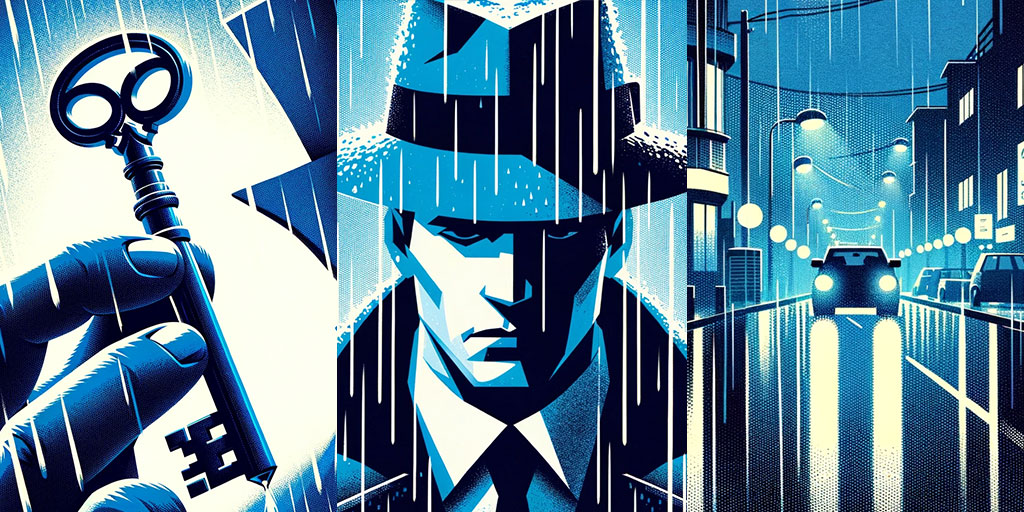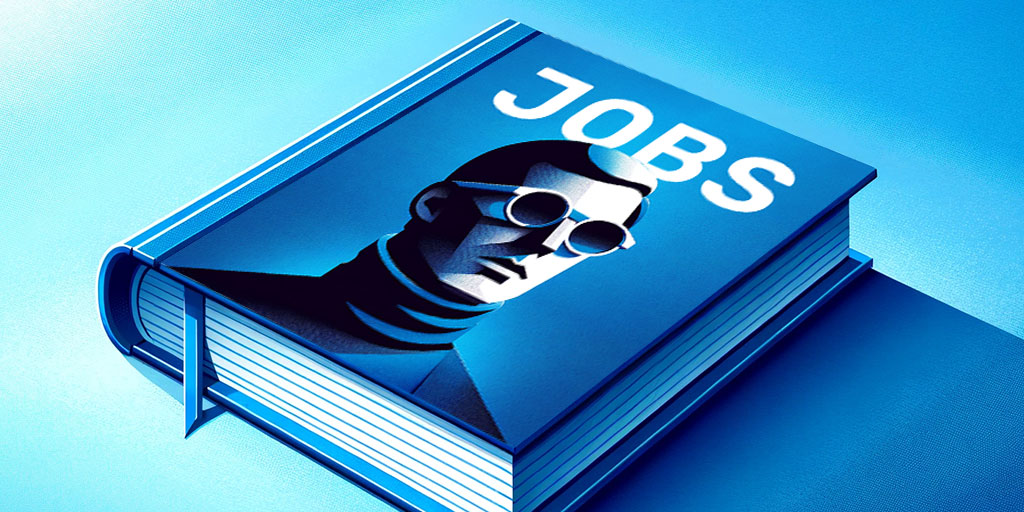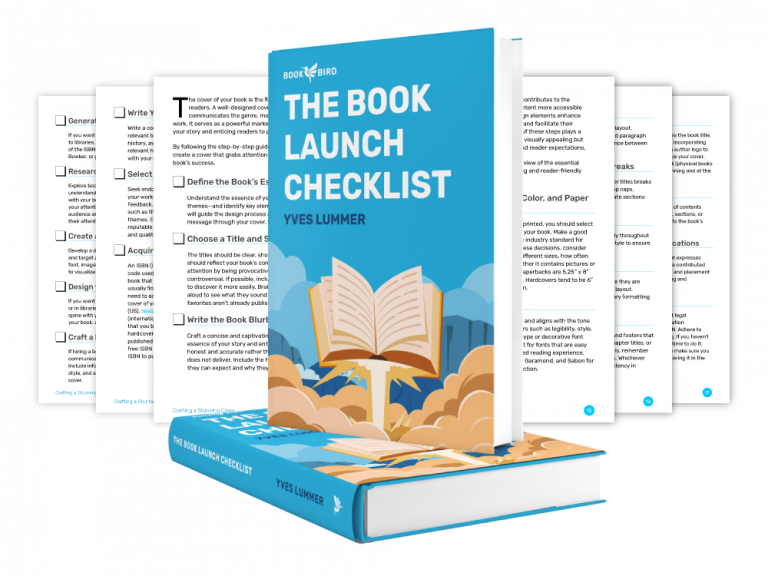Imagine seeing your book on the shelves of bookstores and libraries everywhere, your name on the cover, and your words inspiring readers around the world. If you’re a writer, getting a book deal is likely one of your ultimate goals. And it’s a dream that can become a reality through the magical gateway known as a book deal. But how does one cross this threshold into the world of publishing?
The journey from writer to published author can be as daunting as it is rewarding. So, in this guide, we will unravel the mystery and complexity of the publishing world, revealing 11 essential steps that will guide you on your path to signing that coveted publishing deal.
What is a Book Deal?

A book deal is a contractual agreement between an author and a publishing company that outlines the terms and conditions under which the author’s work will be published, distributed, and sold to the public. It’s a critical step in the process of bringing a book from manuscript to the hands of readers.
Book deals can vary widely on their terms and conditions. Some common factors that are negotiated include:
- Advance: The advance is the amount of money that the publisher pays the author upfront, before the book is published. Advances can range from a few thousand dollars to hundreds of thousands of dollars, depending on the author’s experience and reputation, the genre of the book, and the publisher’s expectations for sales.
- Royalty Rate: The royalty rate is the percentage of the book’s retail price that the author earns on each copy sold. Royalty rates typically range from 10 percent to 15 percent, but can be higher for bestselling authors.
- Subsidiary Rights: Subsidiary rights are the rights to publish and distribute the book in other formats, such as audio, e-book, and foreign translation. The publisher may ask for the rights to all subsidiary rights, or they may be willing to negotiate with the author.
- Creative Control: Some publishers give authors a lot of creative control over aspects like cover page and formatting, while others may have more specific requirements.
In addition to the above terms, book deals may also include other provisions, such as marketing and publicity support, author tours, and book signing events.
While nonfiction authors can occasionally approach publishers directly, fiction authors typically secure book deals by working with literary agents. Literary agents are professionals who represent authors to publishers. They help authors develop their book proposals, submit their manuscripts to publishers, and negotiate book deals.
Benefits of a Book Deal

Obtaining a book deal can offer numerous benefits to an author. While the specific advantages can vary depending on the terms of the deal and the author’s individual goals, here are some of the key benefits:
- Financial Compensation: One of the most immediate benefits of a book deal is the advance payment offered by the publisher. This advance provides authors with an upfront sum of money, allowing them to dedicate more time to writing and supporting their writing career.
- Professional Editing and Production: Publishing houses provide editing, proofreading, cover design, and formatting services by trained professionals. This guarantees the book is of high quality and meets industry standards, which increases its overall attractiveness to readers.
- Distribution and Exposure: Books can more easily make it to bookstores, libraries, and online retailers thanks to publishers’ well-established distribution networks. This widespread dissemination of books may greatly expand the audience for each publication.
- Marketing and Promotion: Advertising, book tours, social media campaigns, and catalogue listings are all examples of marketing and promotional activities in which publishers may choose to invest. These activities help raise awareness about the book and reach a wider audience.
- Credibility and Prestige: Being published by a reputable publishing house can enhance your credibility and prestige in the literary world. It signifies that your work has been recognized and validated by professionals in the industry.
- Access to Resources: Authors with book deals gain access to the publisher’s resources, such as editorial expertise, cover design teams, and distribution channels, which may be otherwise challenging to access independently.
- Increased Sales Potential: Books published by established publishers are more likely to be stocked by bookstores and reviewed by literary critics, increasing their potential for sales and visibility.
- Long-Term Publishing Opportunities: A successful book deal can open the door to future publishing opportunities with the same publisher or others. Building a track record of published works can be advantageous for your career.
- Professional Development: The publishing process, including editing and feedback from professionals, can be a valuable learning experience, helping you improve your craft and storytelling skills.
Drawbacks of a Book Deal

While obtaining a book deal can be a significant achievement for an author, you must be aware of the potential drawbacks and challenges that can come with such an arrangement. Here are some of the disadvantages of a publishing deal:
- Advance: The advance that you receive when you sign a book deal is an advance on royalties. This means that you must earn back the advance from your book sales before you start earning royalties. If the book does not sell well, you may have to pay back the advance to the publisher.
- Low Royalty Rates: Compared with the 70 percent royalties of self-published authors, royalty rates for traditionally published authors are typically very low, ranging from 10 to 15 percent. This means that you may not earn a lot of money from your book sales, especially if the sales are low to average.
- Loss of Creative Control: When you sign a book deal, you may have to relinquish some degree of creative control. Publishers often have input on aspects like cover design, title, wordcount, and marketing strategies, which may not align with your vision.
- Contractual Obligations: Book contracts can be complex and may include specific obligations for the author, such as deadlines for manuscript delivery, word count requirements, and promotional activities. Failure to meet these obligations can have legal and financial consequences.
- Competitive Market: The publishing industry is highly competitive, and not all books receive the same level of marketing and promotion. Some authors may find themselves in a situation where their book doesn’t receive adequate attention or resources from the publisher.
- Long Publishing Timelines: Unless you’re an experienced author with an already-established agent, traditional publishing often involves lengthy publishing timelines, which can range from one to two years or more from manuscript submission to book release.
- Risk of Rejection: Before securing a book deal, you may face numerous rejection letters from literary agents and publishers. This process can be emotionally challenging and may require persistence and resilience.
- Loss of Rights: Book contracts often specify which rights the author retains and which are granted to the publisher. You may lose control over aspects like adaptation rights, foreign rights, or digital rights, limiting your potential income streams.
- Market Trends: Publishing trends can change rapidly, and certain genres or styles may become more or less popular over time. Authors with niche or unconventional work may struggle to find a publisher willing to take on their project.
Traditional Publishing vs. Self-Publishing

Traditional publishing is the process of releasing a book through an established publisher that has a team of editors, designers, and marketers who work with authors to produce, distribute and promote their books.
Self-publishing is the process of publishing a book independently of a traditional publisher, unconstrained by a contract’s rules. Authors who self-publish are responsible for all aspects of the publishing process, including editing, designing, marketing, and distributing their books. The easiest and most common way to do this is through Amazon KDP, which distributes both eBooks and hardcopies.
The choice between traditional publishing and self-publishing depends on an author’s goals, preferences, and circumstances. Traditional publishing offers the benefits of prestige, professional support, and established distribution but can be competitive and may involve sacrificing some creative control. Self-publishing, on the other hand, provides complete control, higher royalties, and faster publication but requires authors to take on the responsibilities of production, marketing, and distribution themselves.
Authors should carefully consider their priorities and evaluate which publishing route aligns best with their objectives, skills, and resources.
Below you will find a table that compares and contrasts the key aspects of the two publishing routes.
Characteristic | Traditional Publishing | Self-Publishing |
|---|---|---|
Royalty rates | Lower (10-15%) | Higher (up to 70%) |
Financial Risk | Publisher invests; no upfront costs for authors | Authors bear upfront costs for production |
Editorial and Production | Professional services provided by publisher | Authors are responsible for editing, design, etc. |
Marketing and Promotion | Marketing support provided by publisher | Authors manage their marketing |
Barriers to Entry | Competitive and requires submissions | Open to anyone with a manuscript |
Distribution | Established distribution networks to online retailers, libraries, and brick-and-mortar bookstores | Distribution through online retailers, where it might catch attention of libraries and brick-and-mortar bookstores |
Publishing Timelines | Longer publishing timelines | Quicker publication turnaround |
Quality Control | Publisher ensures industry standards | Authors oversee it, so quality varies |
Creative Control | Limited control over design and strategy | Full control over all aspects |
How to Get a Book Deal: A Step-by-Step Guide
Getting a book deal can be a complex and competitive process, but with determination, persistence, and the right strategy, it’s achievable. Here’s a step-by-step guide on how to get that elusive publishing deal.
Step 1: Ensure Your Book is Marketable

A marketable book is more likely to attract literary agents and publishers. Publishing houses won’t be keen to sign up authors for a book that doesn’t have a potential audience. They carry the financial risk, after all.
To make sure your book will be marketable, begin by identifying the genre or category of your book. Understand what types of books are currently popular and which topics resonate with your target audience. Choose a subject you are passionate about and knowledgeable in to increase its authenticity.
Then, develop a compelling idea. Your book should have a unique and engaging concept or premise. What makes your story or content stand out? Create a captivating idea that grabs readers’ attention from the start.
You should also identify the target audience. Which age, gender, income, education level, geographic location, and interests/hobbies will your book appeal to? For example, a young adult fantasy novel may target readers aged 12-18, while a personal finance book may target adults in their 30s-50s. This will help you tailor your writing and explain the potential market to agents and publishers.
Step 2: Write a Stellar Manuscript

Writing a fantastic manuscript is the foundation of your journey toward securing a book deal. This is a step that you must take seriously before you can start thinking of literary agents and book deals. Here are some ideas for how to do it effectively:
- Plan and Outline: Outline your book’s structure and chapters. A well-organized outline provides a roadmap for your writing process. It can help you maintain a coherent narrative or argument throughout the manuscript.
- Develop Characters and Content: If you’re writing fiction, ensure your characters are well-developed with distinct personalities, motivations, and arcs. In non-fiction, conduct thorough research to support your arguments and provide accurate information.
- Show, Don’t Tell: Instead of telling readers what’s happening in fiction, show it through vivid descriptions, dialogue, and actions. Engage the reader’s senses to create a more immersive experience.
- Edit and Revise: After completing your first draft, take a break before revising. Editing involves checking for grammar, punctuation, and clarity. Revision involves refining the writing, improving dialogue, and strengthening the narrative or argument.
- Seek Feedback: Share your manuscript with beta readers, writing groups, or trusted individuals for feedback. They can provide valuable insights and help you identify blind spots in your work.
- Redo the Revision and Editing: Based on feedback, make additional revisions to enhance the manuscript’s quality. Repeat this process until you are satisfied with the final result. Make sure to incorporate the suggestions made by multiple beta readers.
Step 3: Write an Elevator Pitch

An elevator pitch is a concise, well-crafted, and attention-grabbing description of a book. It is so called because it should be short enough to deliver in the span of an elevator ride, typically 30 seconds to 2 minutes. The goal of this pitch is to capture the listener’s interest quickly and effectively, leaving them intrigued and wanting to know more.
Here’s how to write an elevator pitch for your book and what it should include:
- Main Character and Setting: Briefly introduce the main character or characters and the setting of your book. Provide enough information to set the stage for your story.
- Conflict or Challenge: Describe the central conflict, challenge, or problem that drives the narrative of your book. This should convey what’s at stake for the characters and why readers should care.
- Unique Element: Identify the unique and standout element of your book that makes it different from others in the same genre or category. It could be a twist, a theme, a setting, or a character trait that sets your story apart.
- Emotion or Theme: Communicate the emotional resonance or central theme of your book. What do readers stand to gain emotionally or intellectually from reading your book?
- A Captivating Hook: Include an engaging hook that grabs the listener’s attention. This should be a compelling statement or question related to your book’s core concept or conflict.
- Brevity and Clarity: Be clear, concise, and focused. Exclude unnecessary filler words. Avoid superfluous details or lengthy explanations. Aim to deliver it within one minute.
- Accuracy: Be as accurate as possible. If you misrepresent your slow-burn suspense novel as a fast-paced thriller, for example, the agent will be annoyed when they receive your book and will reject it, and you would thereby have destroyed a potential relationship.
Here is an example of an elevator pitch for “The Martian” by Andy Weir:
Astronaut Mark Watney is stranded alone on the desolate and unforgiving planet Mars. With limited supplies and no means of communication, he faces insurmountable odds for survival. But Mark isn’t giving up. Armed with his ingenuity, resourcefulness, and a stubborn determination to live, he battles the harsh Martian landscape, all while NASA races against time to bring him home. It’s a thrilling tale of human resilience, problem-solving, and the unbreakable will to survive in the face of seemingly impossible odds.”
Step 4: Compose a Query Letter

Very few publishers still accept query letters from writers directly. They insist that writers are represented by agents, since they believe that the agents save them the time of reading through thousands of obviously unsuitable letters and/or manuscripts. So, you will have to write a query letter to a literary agent to represent you with a publisher.
A query letter is a formal letter to a literary agent that introduces yourself and your book. It should be concise, professional, compelling, and no more than one page long. Here’s what it should include:
- Address the Agent: Begin your letter with a formal salutation, addressing the agent by name. Always double-check the agent’s name and ensure it is spelled correctly.
- Personalization: Mention why you’re querying this particular agent. This could be based on their specific interests, the authors they represent, or any recent sales or accolades related to books they’ve represented.
- Opening Paragraph: Start with a strong opening that immediately hooks the agent’s interest. This could be a brief description of your book’s core concept or a compelling question or statement related to your manuscript.
- Book Details: Provide essential details about your manuscript, including its title, word count, genre, and a brief one-sentence summary of the book’s plot or central theme.
- Elevator Pitch: Include the elevator pitch that you wrote in the previous step.
- Author Bio: Share a brief author bio that includes your writing credentials, relevant publications, writing awards, and any other qualifications that establish your credibility as a writer. If you don’t have prior publishing experience, you can mention your passion for writing or online following.
- Closing Paragraph: Conclude your letter by expressing your interest in working with the agent. Mention that you would be happy to provide additional materials upon request, such as a full manuscript, sample chapters, or a book proposal.
- Appreciation and Signature: Express your appreciation for the agent’s time and consideration. Sign the letter with a professional closing, such as “Sincerely” or “Best regards,” followed by your full name.
Step 5: Find Suitable Agents

Agents tend to specialize in different genres, which means that you must find one whose preferences and interests match the characteristics of your book. There are a few places where you can find and identify literary agents who may be a good fit for your work.
Utilize online directories that list literary agents. Websites like AgentQuery, QueryTracker, Duotrope, and Publishers Marketplace provide extensive databases of literary agents along with their profiles, submission guidelines, and genres of interest.
Check books like “Writer’s Market” and “Guide to Literary Agents.” These resources are updated often and provide detailed information about literary agents, including their preferences and contact details.
Visit the websites of literary agencies. Many agencies list their agents, their specific interests, and submission guidelines on their websites. Reviewing agency websites can help you identify agents who represent books in your genre.
Research authors whose work is similar to yours in terms of genre and style. Look in the acknowledgments section of their books where they often thank their literary agent. See if you can track them down on the internet and whether they’re taking new submissions.
Look at the websites of publishers that specialize in your genre. They often list the literary agents who represent their authors. If your book is a good fit for a particular publisher, the agent who represents their authors may also be interested in your work.
Once you have found appropriate agents, do some research on their work, personalize your query letter to include their details, and send your letter to five or six agents per week. If their submission guidelines specify a number of your book’s pages that you should include with the letter, do so too.
After sending them off, don’t annoy the agents for a response. Keep careful track of the dates on which you send the letters, and follow up with a polite inquiry after six to eight weeks.
Step 6: Network with Industry Professionals

The unfortunate reality is that agents are overwhelmed with query letters and book submissions, which will make it very hard for yours to stand out from the pile.
As a result, networking with industry professionals might help you to connect personally with literary agents and increase your chances of finding representation for your work.
Look for writing workshops, conferences, and seminars in your genre or area of interest. These events often feature literary agents as speakers, panelists, or participants. Attend sessions where agents are speaking to gain insights into the industry and their preferences.
Engage actively in workshops, panel discussions, and networking sessions to catch attention. Ask questions, share your experiences, and connect with fellow writers.
Join writer’s groups in your local area or online. Those specifically related to your genre, like the Mystery Writers of America or Romance Writers of America, might have resources for finding agents and may provide networking opportunities with other writers who can advise you.
Follow literary agents, authors, and writing organizations on social media platforms like X, LinkedIn, and Facebook. Engage in conversations, comment on their posts, and share your experiences.
Step 7: Build an Author Platform

While publishers do offer marketing services, they tend to spend most of their resources on authors with a track record of publishing successful books. If you lack such a record, you will probably still be responsible for much of your book’s marketing.
For this reason, building an author platform is essential for establishing your presence as a writer, for connecting with your target audience, and for convincing your agent and publisher that you have an already-established and enthusiastic audience.
Here are some steps to take to build an author platform:
- Create an Author Website: Build a professional author website that includes an author bio, a blog or news section for updates, information about your books, and contact details. Your website is your online hub and should represent your brand.
- Start Blogging: Maintain a blog on your website where you regularly publish content related to your writing, interests, or expertise. Blogging helps showcase your writing skills, engage readers, and drive traffic to your site.
- Email Newsletter: Start an email newsletter to connect directly with your readers. Collect their email addresses through your website and social media. Share exclusive content, book updates, and personal insights with your subscribers.
- Active Social Media Presence: Establish and maintain active profiles on social media platforms such as Twitter, Facebook, Instagram, and LinkedIn. Share writing updates, engage with readers, and connect with other authors and industry professionals.
- Engage in Content Marketing: Create valuable content, such as articles, essays, or videos, and share it on platforms like Medium or YouTube. Content marketing can help you reach a broader audience and demonstrate your expertise.
- Author Interviews and Guest Posts: Participate in author interviews and write guest posts for blogs, websites, or podcasts related to your genre or interests. This can help you reach new audiences and establish authority in your niche.
- Book Reviews and Recommendations: Write reviews and recommendations for books you’ve enjoyed on platforms like Goodreads, LibraryThing, Book Riot, Bookish, and Booklist. This can help you connect with authors and readers in your genre and demonstrate your passion for literature.
You can find a step-by-step guide on how to build an author platform in our Book Launch Checklist.
Step 8: Be Persistent and Open to Feedback

The publishing industry can be highly competitive and challenging to break into. Many successful authors faced numerous rejection letters before finding the right agent or publisher. Persistence is what keeps you going in the face of rejection and setbacks.
J.K. Rowling’s “Harry Potter and the Philosopher’s Stone” was rejected by 12 publishers, Stephen King’s “Carrie” by 30. Ernest Hemingway, Rudyard Kipling, F.Scott Fitzgerald, Harper Lee, Ray Bradbury, and Neil Gaiman all continued to write after dozens or hundreds of rejection slips.
Accordingly, if you want that publishing deal, you will have to persevere. Don’t let rejection deter you. Continue to submit your query letter to different literary agents or even small publishers who may be a better fit for your work. Remember that rejection is a common part of the process.
If a literary agent provides feedback with a rejection, view it as a valuable opportunity for improvement. Agents may offer insights into what didn’t work in your query or manuscript.
You can also join writing communities or workshops where you can exchange feedback with other writers. Constructive criticism can help you identify areas for improvement.
Best of all, surround yourself with a supportive writing community, whether online or in person. Share your experiences, celebrate your successes, and draw inspiration from fellow writers.
Step 9: Negotiate the Agent’s Contract

A literary agent contract, also known as an agency agreement, is a legal document that outlines the terms and conditions of the professional relationship between an author and a literary agent.
While specific details may vary from one contract to another, if usually includes the duration/terms of representation, the agent’s duties, the author’s obligations, the agent’s commission (usually 15 percent), and dispute resolution mechanisms.
If there’s anything in the contract that you don’t understand, you can obtain some legal advice.
One important scam to avoid is an agreement to pay an agent upfront, since their commission typically comes from your profit.
Step 10: Refine Your Book

Before your agent submits a manuscript to a publisher, they will have suggestions on how you can refine and improve it. Incorporate these suggestions or negotiate if they don’t match your vision for the book.
Step 11: Sign the Publishing Deal

Once the agent comes back to you with an offer from a publisher, you will be offered a contract that includes elements like the rights being granted to the publisher, your advance payment, your royalties, an estimated publication date, the editorial and production process, marketing and promotion duties, and so forth.
Never back yourself into a do-or-die corner when a publisher offers you a deal. Continue to remind yourself that you can always walk away. Self-publishing remains an option if you cannot get a deal that protects your interests.
Your agent can help you navigate the complexities of the contract, as their commission hinges on your earnings from the book.
One common scam to avoid is an agreement that expects you to sign away the copyright of your book. Another fraudulent practice is when shady organizations expect you to fit the bill for publishing services upfront.
Common Pitfalls & Things to Avoid

The path to a book deal is filled with common pitfalls and errors that might trip up aspiring authors. To increase your chances of success in this potentially treacherous landscape, avoid making these frequent mistakes:
- Rushing the Query Letter: Take your time to craft a compelling and error-free query letter. A poorly written or hastily prepared query can lead to rejections.
- Ignoring Submission Guidelines: Agents and publishers often have specific requirements for queries and manuscripts. Failure to adhere to these guidelines can result in automatic rejections.
- Sending Unpolished Manuscripts: Your manuscript should be in the best possible shape before submission. Consider getting feedback from beta readers or a professional editor.
- Being Impersonal: Sending generic, one-size-fits-all query letters is a mistake. Tailor your query to each literary agent or publisher, addressing them by name and demonstrating that you’ve done your research on their preferences and interests.
- Lack of Persistence: Rejections are common in the publishing industry. Be persistent and continue submitting your work to multiple agents or publishers.
- Lack of Platform Building: Publishers often look for authors with a strong online presence and author platform. Neglecting to build your platform can hinder your chances of securing a book deal. Start building your author platform early through blogging, social media, and other means.
- Neglecting Legal Aspects: Not fully understanding the legal aspects of contracts and agreements is a mistake. Consider consulting with a literary attorney or legal professional when reviewing publishing contracts.
Is a Book Deal Right for You?

If you are still undecided on whether to go for a traditional book deal or whether to self-publish on online platforms like Amazon KDP, consider the advantages and disadvantages of both.
A Book Deal Is Right for You if You:
- Seek Wider Distribution: Traditional publishing often provides access to broader distribution channels, increasing the chances of reaching a larger readership and gaining recognition in the literary world.
- Look for Professional Support: Traditional publishers typically offer editorial, design, marketing, and promotional support, which can be beneficial for authors who want expert guidance throughout the publishing process.
- Lack Self-Publishing Skills: Self-publishing requires skills in formatting, cover design, marketing, and distribution. Authors who lack these skills may find traditional publishing a more suitable option.
- Need an upfront payment: Some traditional publishing deals come with advances, providing you with an upfront payment before royalties start coming in. This can be advantageous if you need an immediate income.
A Book Deal May Not Be Right for You if You:
- Seek Full Creative Control: Traditional publishing often involves relinquishing some creative control, such as cover design and marketing decisions. Self-publishing allows for greater autonomy in these areas.
- Look for Faster Publication: Traditional publishing timelines can be lengthy, often taking a year or more from acceptance to publication.
- Have non-commercial Work: Traditional publishers may be hesitant to take on niche or unconventional works that may not have mass-market appeal.
- Have High Royalty Expectations: Traditional publishing royalty rates are often lower than those in self-publishing. If you prioritize higher royalty earnings, you may opt for self-publishing.
Frequently Asked Questions
To help shed light on some of the common queries and uncertainties that arise in the process of obtaining a book deal, review the answers below.
How Much Do You Get Paid for a Book Deal?
The payment for a book deal can vary widely depending on factors such as the author’s experience, the publisher, and the genre of the book. Authors tend to receive an advance against future royalties, typically ranging from a few thousand dollars to several hundred thousand dollars for established authors. They then receive 10-15 percent royalties once their book sales have paid off the advance.
Should I Send My Book to a Publisher?
Whether or not you should send your book to a publisher depends on your goals, circumstances, and the nature of your work. If you seek wider distribution, professional support, validation, and an immediate income, traditional publishing may be a suitable choice. However, if you value creative control, want faster publication, higher royalties, or have a niche or unconventional work, self-publishing might be a better fit.
Do Publishers Own Your Book?
In traditional publishing, publishers typically acquire certain rights to publish and distribute your book, but they don’t own the copyright to your work. You, as the author, retain the copyright, but the publisher holds specific rights related to the edition they produce. The exact terms can vary and should be detailed in the publishing contract.
Do Publishers Ask for Money?
Reputable traditional publishers do not ask authors for money upfront to publish their work. Instead, they typically provide advances against future royalties and cover the production and distribution costs of the book. Be cautious of vanity presses or publishing scams that require authors to pay for publishing services, as these are not standard practices in the legitimate publishing industry.
How Long Does It Take to Get a Book Deal?
The timeline for securing a book deal can vary widely depending on factors like the genre of the book, the quality of the manuscript, and the current market conditions. It can take several months to several years, from the initial submission of queries to the final contract signing, and it’s not uncommon for the process to involve multiple rounds of revisions and rejections before finding the right fit with a literary agent or publisher.
How Many Followers Do You Need to Get a Book Deal?
The number of followers you need to secure a book deal can vary, and it’s not solely based on social media numbers. While a strong author platform with at least 25,000 followers can be an asset, publishers also consider the quality of your engagement, the relevance of your content to your book’s topic, and the uniqueness of your voice. Having a substantial and engaged online presence can certainly be a factor, but it’s just one of many that publishers evaluate when considering book deals.
What Happens if You Get a Book Deal?
If you secure a book deal with a traditional publisher, the publisher will typically handle various aspects of publishing, including editing, cover design, distribution, and marketing. You’ll work closely with your publisher throughout the publication process, and once your book is released, you’ll have the opportunity to engage in book promotion and connect with readers. Your earnings will come from royalties based on book sales, with the possibility of additional income from subsidiary rights, such as film or foreign rights sales.
How Long Do Book Deals Last?
The duration of a book deal can vary based on the terms negotiated with the publisher. Typically, the initial contract may cover a set number of years or until certain conditions are met, such as the book going out of print. Some book deals are for a single book, while others may include multiple books or a series. The specifics of the contract’s duration should be outlined in the publishing agreement.
Final Thoughts
Securing a book deal is a significant milestone in any author’s journey, but the path to publication is as unique as your writing itself. The steps outlined in this guide provide a structured framework to guide you, but each step may require patience, persistence, and adaptation to your individual circumstances.
Whether you choose traditional publishing or self-publishing, what truly matters is your dedication to your craft, your passion for your story, and your unwavering commitment to sharing your words with the world. Embrace the challenges, celebrate the successes, and never stop writing, for it’s the journey itself that makes the destination all the more rewarding.







